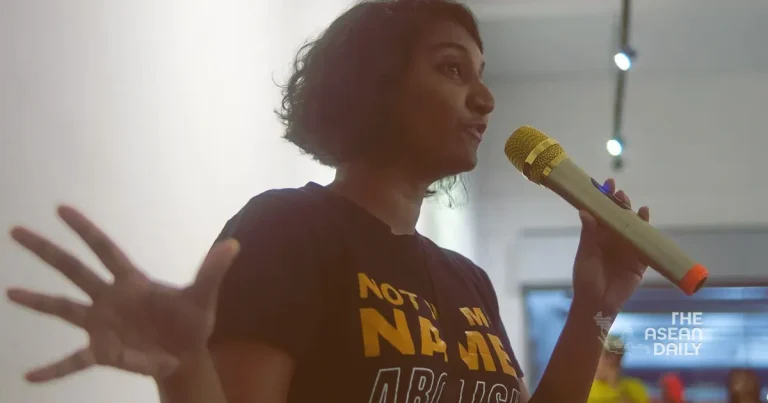6-11-2024 (SINGAPORE) In an unprecedented challenge to Singapore’s online misinformation legislation, activist Kokila Annamalai has refused to comply with a government order to post corrections regarding her criticism of the city-state’s death penalty system, potentially facing imprisonment and substantial fines.
The 36-year-old campaigner’s defiance marks the first known instance of a Singaporean citizen opposing the Protection from Online Falsehoods and Manipulation Act (Pofma), risking a 12-month jail term and fines up to S$20,000.
At the heart of the dispute lies Annamalai’s social media commentary on the October execution of Azwan bin Bohari, convicted of drug trafficking. The government contends her posts misrepresented Singapore’s legal procedures and demanded corrections to claims about arbitrary execution scheduling and burden of proof in drug cases.
“Death row prisoners represent society’s most vulnerable voices,” Annamalai told reporters, defending her decision to resist the correction order. Her stance reflects growing tensions between Singapore’s stringent control of public discourse and emerging civic activism.
The Ministry of Home Affairs maintains that the government “does not target individuals for opposing capital punishment” but must address “false statements about government policy” that could affect public interest. They emphasise that the order merely requires correction notices alongside original posts rather than their removal.
Annamalai, who has faced multiple police investigations for peaceful protests, argues that social media remains one of few platforms available for critical discourse in Singapore. Through her work with the Transformative Justice Collective, she has witnessed increasing public engagement with civil liberties issues, particularly regarding capital punishment.
Despite research indicating broad public support for capital punishment, recent years have seen unprecedented protests against executions, with over 400 participants gathering in 2022. Annamalai attributes this shift to greater awareness of how the death penalty disproportionately affects marginalised communities.
The case highlights evolving public attitudes towards civic rights in Singapore, where traditional social contracts exchanging civil liberties for economic prosperity face growing scrutiny amid rising inequality and living costs.
Amnesty International has criticised the Pofma orders as attempts to suppress peaceful expression, while Annamalai’s stance may set a significant precedent for civil society activism in Singapore.




